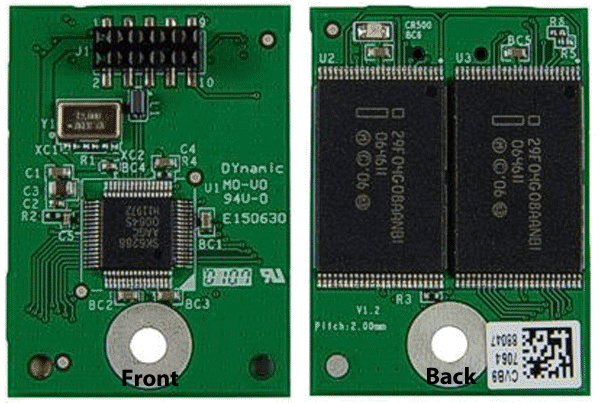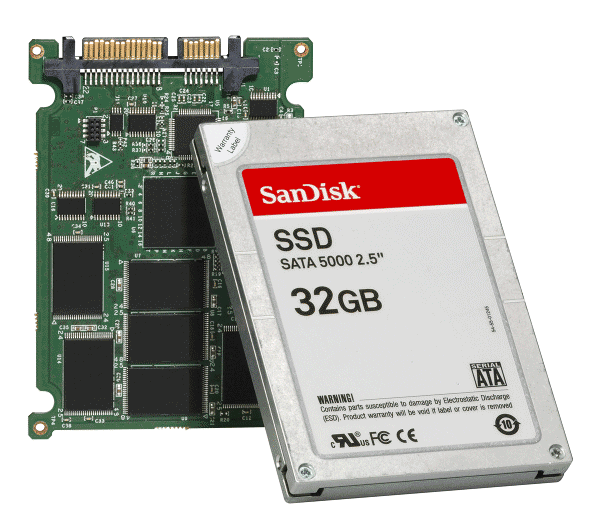Intel introduces first solid-state drives based on flash memory
Following reports that Apple Inc.'s plans to build flash memory into an upcoming sub-notebook, Intel Corp. this week announced plans to support manufacturers in the emerging notebook market with its Z-U130 series of Value Solid-State Drives.
"Solid state drive technology offers many benefits over traditional hard disk drives including improved performance and reliability," said Randy Wilhelm, vice president and general manager of Intel's NAND Products Group. "The Intel solid state drive technology provides robust performance, while offering Intel's industry leading quality, validation and reliability for a wide variety of embedded applications."
The Santa Clara-based firm said the Z-U130 Value Solid State Drive is its first solution in the Value Solid State Drive family that will eventually offer different industry standard interfaces and densities. The drives weigh just 10 grams and are available in 1 Gigabyte (GB), 2GB, 4GB and 8GB densities.
With read speeds of 28 megabytes (MB) per second and write speeds of 20 MB per second, the higher performing solid state drives offer a faster storage alternative that speeds through common PC or embedded application operations such as locating boot code, operating systems and commonly accessed libraries.
The drives will also be used in a variety of Intel-based computing platforms, such as servers, emerging market notebooks and low-cost, fully featured PCs. In addition, they will be used in the company's embedded solutions for routers and point of sale terminals.
Intel Corp.'s Z-U130 Value Solid State Drive.
Intel says the Z-U130s will distinguish themselves from other solid state product offerings by their extensive validation, including more than 1,000 hours of accelerated reliability testing. The drives are expected to meet an average mean time between failure (MTBF) specification of five million hours.
The Z-U130s are said to easily fit into original design manufacturers' systems because of their USB 2.0 and 1.1 compliant interfaces, 2x5 USB connector and standard single-level cell NAND in thin small outline package (TSOP) devices. The company added that it is also considering next-generation products that could incorporate cost-effective multi-level cell (MLC) technology.
In related news, SanDisk on Tuesday revealed its own solid-state drive for notebooks that employs the faster Serial ATA standard. The 32GB flash drive, which runs on the same drive interface used in Apple's current MacBook line, can sustain data reads of 67MB per second; seek times are said to be even quicker, taking only 0.11 milliseconds to reach data that would take 17 milliseconds to find on a hard disk.
Conceived as a drop-in replacement for other notebook drives, the "SATA 5000" fits into a standard 2.5-inch space without any changes but consumes less than half the power. The 32GB drive will run system builders about $350.
 Prince McLean
Prince McLean












 William Gallagher
William Gallagher

 Wesley Hilliard
Wesley Hilliard
 Andrew Orr
Andrew Orr



 Amber Neely
Amber Neely







